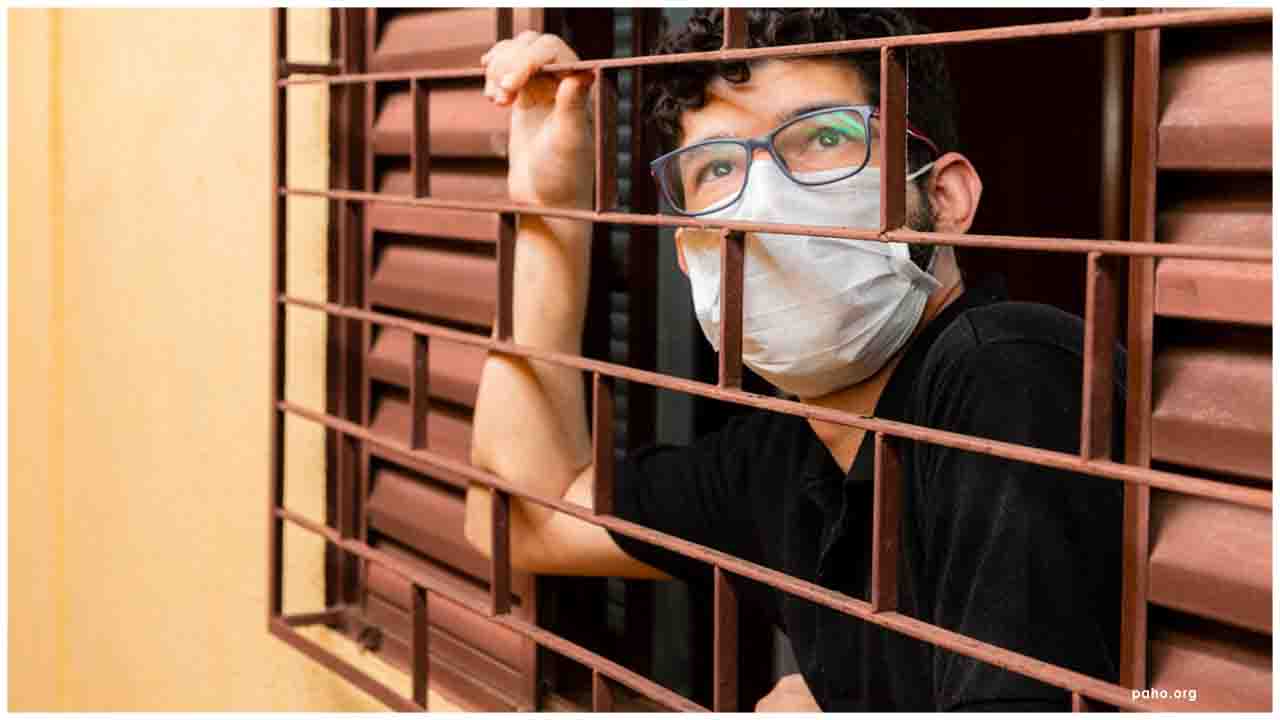A new survey conducted by PAHO and WHO shows that countries are falling short in implementing mental health services at a time when mental health support is paramount, according to PAHO Assistant Director, Jarbas Barbosa.
In a press briefing on the COVID-19 pandemic today, Dr. Barbosa said, “Data from 29 countries show that while 27 of them have integrated mental health into their COVID-19 plans, only two are adequately funded.”
Noting that health care workers have been particularly affected by COVID-19, “making extraordinary personal sacrifices and difficult decisions on the frontlines of the pandemic for months,” Barbosa said new data from 6 countries show worrying signs.
Mental health during a prolonged pandemic“One in five health workers is experiencing symptoms of depression. In Chile, nearly one in ten has suicidal thoughts. Over 75% of health workers are concerned about getting COVID-19 and virtually all are worried about infecting their loved ones,” he said, citing the COVID-19 HEROES cohort study aimed at examining the mental, behavioral, and social health problems experienced by health care workers. The study, a joint effort between the University of Chile and Columbia University, includes Argentina, Chile, Guatemala, Peru, Mexico, and Venezuela
Barbosa said mental health, as well as physical health, must remain a key consideration as we move towards the end of the first year of this global pandemic. “COVID-19 has disrupted our daily routines, forced millions into months-long isolation, devastated our economies, and caused an unimaginable loss of life. We have all been shaken – Surveys from several countries show that the pandemic has increased the level of stress for many in our region, and some of us are battling anxiety and depression,” he added.
“Countries have also failed to sufficiently staff their mental health services, so care may be more out of reach than ever before: psychotherapy, substance abuse support and access to medication have been significantly disrupted and remain unavailable to many who urgently need them,” he said, adding that even efforts to expand access through telemedicine have still not reached the majority of those who need it.
“Individuals living with mental health and substance abuse disorders need reliable care and support, especially now,” he said. “Community-based mental health services, that are integrated into primary health care, are a pillar of mental health services and vital to ensuring that no one gets left behind. Support should be provided where it is needed the most: close to the community,” Barbosa told journalists at the briefing.
COVID-19 in the Americas – Public health measures flatten curvesPAHO’s Assistant Director noted that “Since the start of this pandemic, more than 20 million people have been infected with COVID-19 in the Americas, and nearly 650,000 have died. We are home to more than one in four cases and a third of the world’s coronavirus deaths.” He said in the last seven days, nearly one million new infections were reported in the Americas, “making it one of the worst weeks on record for COVID-19 infections in our region.”
While the cumulative number of new infections is high and continues to increase, he said, “it is important to remember that the perseverance shown by many countries in implementing public health measures has been effective in flattening the curve and protecting health services: Chile, for example, has been able to reduce its rates of infection four-fold since July. Similarly, Paraguay has also reduced trends since September after experiencing a peak in infections. And while Uruguay has experienced clusters of cases, it has been able to avoid community transmission.”
“This underscores why it is so important that national and local authorities implement all necessary public health measures, and why all of us must continue to take individual precautions - Because they work. But it is vital that we maintain this collective effort to protect ourselves, our loved ones, and our health care systems until the end of the pandemic,” Barbosa said.

 A new survey conducted by PAHO and WHO shows that countries are falling short in implementing mental health services during the COVID-19 pandemic.
A new survey conducted by PAHO and WHO shows that countries are falling short in implementing mental health services during the COVID-19 pandemic.










.jpeg)

.jpeg)










.jpg)




.jpg)

